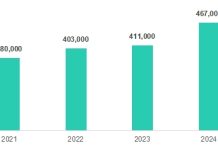
In light of the recent Budget 2025 announcement, experts are acknowledging the government’s efforts to strike a balance between economic growth and fiscal consolidation.
Kenanga Investment Bank (Kenanga IB) believes the move to reduce the fiscal deficit and overall debt-to-gross domestic product (GDP) ratio remains supportive of the domestic economy while ensuring minimal impact on people’s wellbeing despite undertaking a reforms agenda.
“The Finance Ministry (MOF) expects the fiscal deficit to narrow to 3.8% in 2025, down from the 2024 forecast of 4.3%, which aligns with our view that the government will pursue a measured and gradual approach to fiscal consolidation,” it said.
However, Kenanga IB considers the government’s aim of achieving a fiscal deficit of 3.5% by 2025 as ‘overly optimistic and that easing the fiscal consolidation path could allow more room to support growth amid rising global uncertainty’.
Additionally, to boost revenue, the government is broadening the tax base with new taxes, including a tax on dividend incomes, a global minimum tax and higher sugar duties.
The sales and service tax (SST) will be progressively expanded in may to include commercial services, non-essential goods and premium imports, E-invoicing for all taxpayers will be implemented by July 2025, while a carbon tax is set to launch by 2026.
Overall, Kenanga IB said the record-high allocation of RM421 billion for Budget 2025 underscores the government’s strategic commitment to addressing economic challenges, social programmes and fostering growth, showcasing the government’s dedication to sustainable development and social wellbeing.
It also highlighted the government’s aim to drive sustainable growth and innovation with strategic investments and targeted policies, including promoting green technology, energy efficiency and supporting small and medium-sized enterprises (SMEs) as well as mid-sized companies.
“These initiatives will encourage entrepreneurship among women and youth while ensuring agricultural resilience. Tourism, creative and digital sectors will continue to receive backing, while key incentives will attract high-value investments and develop local talent,” it said, noting that the efforts could build a competitive inclusive and future-ready economy.
The government is also focused on enhancing social welfare, wages and public services by raising the minimum wage, expanding salary policies and extending social security coverage for the self-employed.
This also includes the government’s new approach of incorporating various factors to future income classifications to ensure greater fairness and taking into account the net household income.
On this, Economy Minister Rafizi Ramli said that the new method will not depend solely on gross household income.
“It will also consider several other factors. Once that’s finalised, we can then set the statistical lines (for population groups) such as B40 and T15,” he added.














